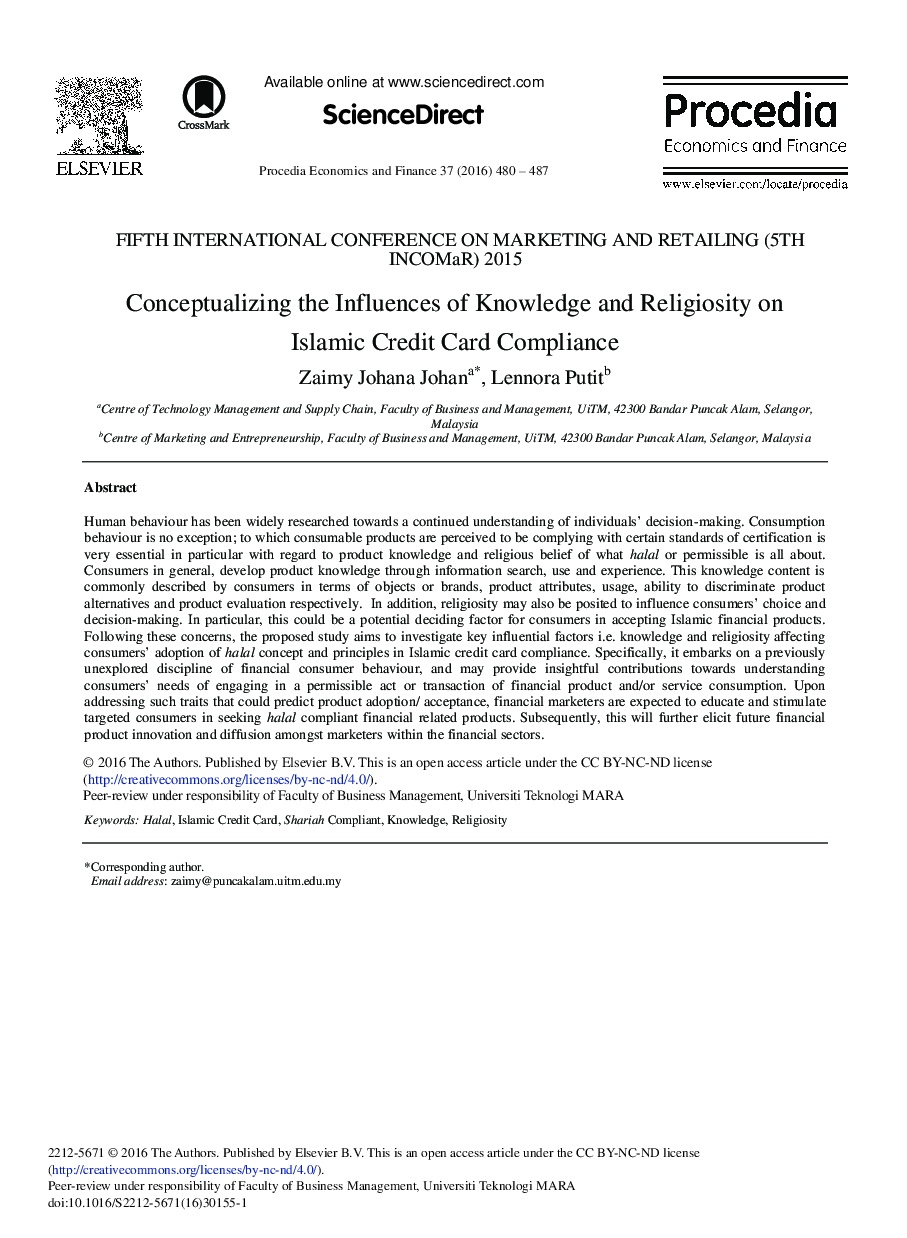| کد مقاله | کد نشریه | سال انتشار | مقاله انگلیسی | نسخه تمام متن |
|---|---|---|---|---|
| 980657 | 1480364 | 2016 | 8 صفحه PDF | دانلود رایگان |
Human behaviour has been widely researched towards a continued understanding of individuals’ decision-making. Consumption behaviour is no exception; to which consumable products are perceived to be complying with certain standards of certification is very essential in particular with regard to product knowledge and religious belief of what halal or permissible is all about. Consumers in general, develop product knowledge through information search, use and experience. This knowledge content is commonly described by consumers in terms of objects or brands, product attributes, usage, ability to discriminate product alternatives and product evaluation respectively. In addition, religiosity may also be posited to influence consumers’ choice and decision-making. In particular, this could be a potential deciding factor for consumers in accepting Islamic financial products. Following these concerns, the proposed study aims to investigate key influential factors i.e. knowledge and religiosity affecting consumers’ adoption of halal concept and principles in Islamic credit card compliance. Specifically, it embarks on a previously unexplored discipline of financial consumer behaviour, and may provide insightful contributions towards understanding consumers’ needs of engaging in a permissible act or transaction of financial product and/or service consumption. Upon addressing such traits that could predict product adoption/ acceptance, financial marketers are expected to educate and stimulate targeted consumers in seeking halal compliant financial related products. Subsequently, this will further elicit future financial product innovation and diffusion amongst marketers within the financial sectors.
Journal: Procedia Economics and Finance - Volume 37, 2016, Pages 480-487
